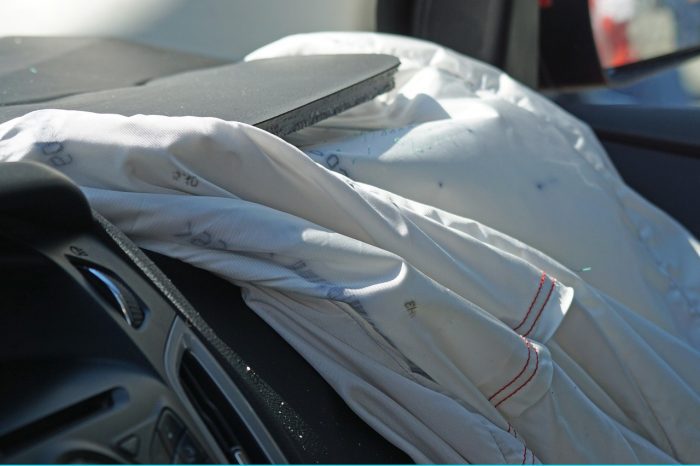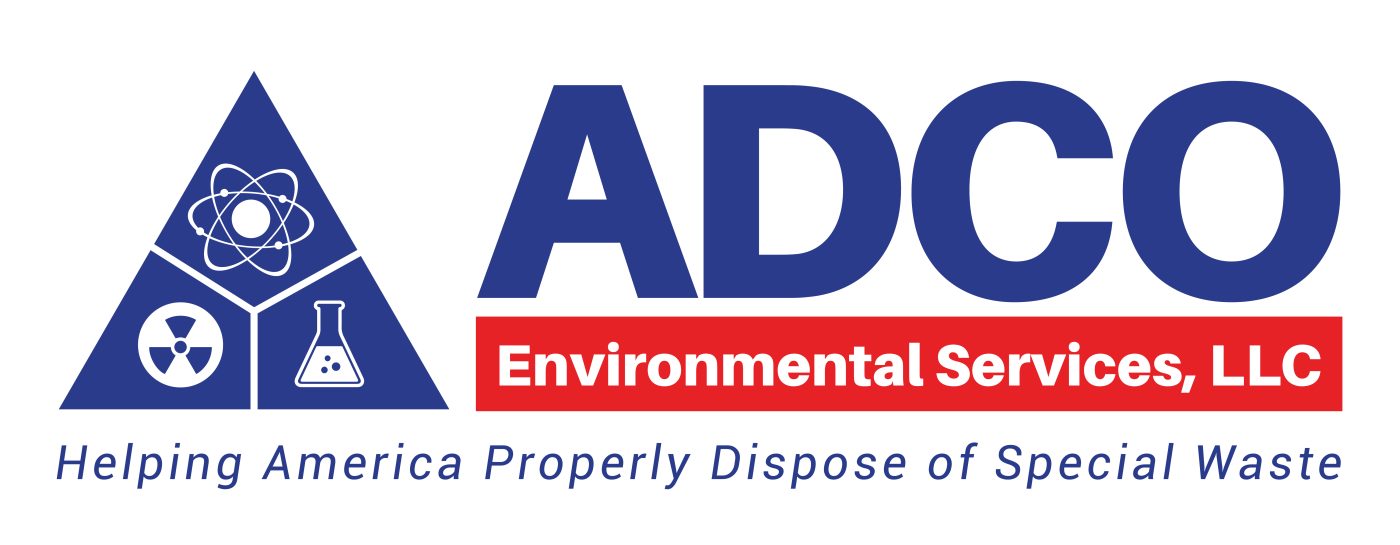Airbag Disposal Services – Hazardous Waste Disposal Considerations
At ADCO Environmental Services, LLC, we specialize in the safe, compliant disposal of all types of hazardous waste—including automobile airbags. With a nationwide footprint, we provide expert airbag disposal services to auto dismantlers, recyclers, government agencies, and industrial operations across the United States. Airbags may seem like harmless safety devices, but in their undeployed state, they pose significant environmental and health risks that require professional handling.

Below, we answer the most commonly asked questions about airbag hazardous waste and explain why it’s critical to partner with a certified disposal provider like ADCO Environmental Services, LLC.
1. How long have airbags been required in U.S. vehicles?
Airbags became federally mandated in new passenger vehicles starting in 1989. Since then, tens of millions of cars with airbag systems have been retired and sent to scrapyards. Many of these vehicles still contain undeployed airbag modules that, if not handled properly, pose a threat to human safety and the environment.
2. Why are undeployed airbags considered hazardous waste?
The core of the issue lies in the propellant chemicals used in airbag inflators—most notably, Sodium Azide. While deployed airbags are generally safe and can be treated as regular solid waste, undeployed airbags retain active hazardous components that require specialized treatment. These components make airbag modules subject to regulation under the Resource Conservation and Recovery Act (RCRA).
3. What is Sodium Azide and why is it dangerous?
Sodium Azide is a toxic, reactive compound used to generate Nitrogen gas in older airbag systems. In an undeployed state, it can remain highly dangerous. When exposed to moisture, it forms Hydrazoic Acid, a volatile substance that can contaminate groundwater and cause serious health issues. Improper disposal may result in unintentional exposure or even explosions.
4. Are airbags required to be removed before scrapping a car?
There is no federal mandate requiring airbag removal before scrapping, but many states have enacted their own regulations. For instance, Oregon, Colorado, and Wisconsin require airbags containing Sodium Azide to be deployed or removed before vehicle dismantling. Regardless of legal obligations, it’s a best practice for all facilities handling end-of-life vehicles to remove undeployed airbags and work with a licensed hazardous waste disposal company such as ADCO Environmental Services to properly dispose of airbags.
5. Are airbags difficult to remove?
Yes. Removing airbag modules is a labor-intensive and technically sensitive task. Airbags are often embedded in multiple parts of the vehicle—steering columns, dashboards, seats, and more. Without proper training, attempting removal can result in accidental deployment, worker injury, or equipment damage. That’s why it’s critical to leave this job to trained technicians and coordinate proper disposal through a certified waste handler like ADCO Environmental Services.
6. How many airbags are in modern vehicles?
Modern vehicles can contain as many as 12 individual airbag units. In addition to the traditional front driver and passenger airbags, newer models may feature side-impact, curtain, knee, and rear passenger airbags. Each undeployed unit may contain hazardous constituents requiring removal and proper disposal according to EPA and DOT regulations.
7. Can undeployed airbags be recycled?
In some cases, yes. Undeployed airbags that are not damaged and meet certain quality standards may be reused in vehicle repairs. Some auto recyclers sell them to body shops for resale, particularly when replacement airbags are prohibitively expensive. However, the resale market is limited due to concerns about liability and functionality. Most insurance companies won’t cover used airbags, and some states restrict or ban their reuse altogether. In most cases, it is safer and more compliant to opt for proper destruction and disposal—especially when you’re managing a large volume of airbags.
8. Where can I find a company to help with airbag hazardous waste disposal?
ADCO Environmental Services, LLC provides comprehensive nationwide services for the handling and disposal of airbag waste. We maintain all required permits to manage RCRA-regulated materials and are experienced in assisting auto recyclers, government agencies, and manufacturers with compliant removal, transportation, and disposal of undeployed inflators and airbag modules.
We offer disposal solutions for:
- Storage and packaging of undeployed airbags
- DOT-compliant transportation
- Documentation and cradle-to-grave tracking
- Safe destruction and disposal at permitted facilities
Whether you have a small number of airbags to manage or a high-volume stockpile of recalled modules, we’re here to help. Our experts ensure your operation stays compliant with all local, state, and federal regulations while protecting your workers and the environment.
Why Choose ADCO Environmental Services, LLC?
- Nationwide Service – We provide hazardous waste pickup and disposal services throughout the United States.
- Fully Permitted – We’re licensed to handle RCRA hazardous materials and maintain strict compliance with EPA and DOT standards.
- Expert Support – Our team can walk you through regulatory requirements and disposal best practices.
- Fast Turnaround – We respond quickly and efficiently to service requests of all sizes.
Contact Us Today
Airbag disposal is not something to leave to chance. Protect your business from environmental liability and ensure safety and compliance by working with the pros at ADCO Environmental Services, LLC.
To learn more about our airbag disposal services, contact us on our website at https://specialwastedisposal.com/contact or call us at 877-254-2326.
Let us help you take the risk and guesswork out of hazardous waste disposal. We’re standing by to assist you nationwide!
